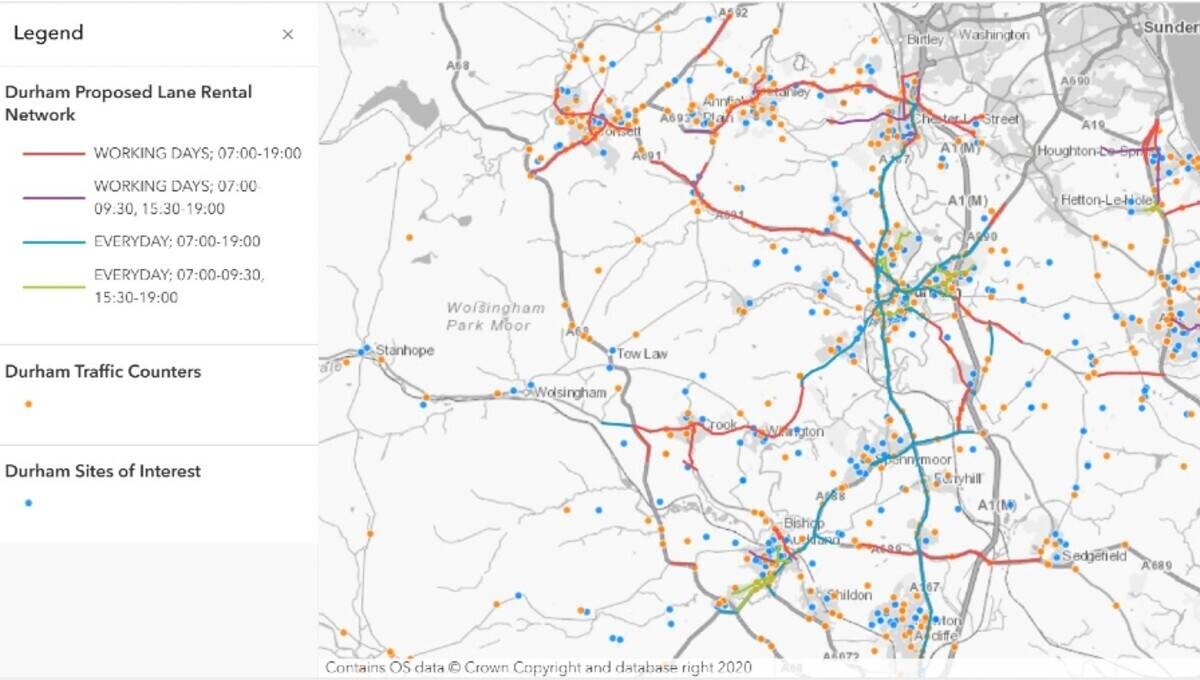Report suggests that the national addressing initiative delivers £54m annual savings to local government
Key findings:
Complete and joined up address data is the foundation of efficient, reliable and integrated local government service delivery
Benefits accrue from faster and more efficient service delivery and from significant improvements in data quality
Accessing address data now takes two thirds of the time it used to. As the LLPGs (Local Land and Property Gazetteer
Report suggests that the national addressing initiative delivers £54m annual savings to local government
Key findings:
A new report from the Centre for Economics and Business Research (CEBR) calculates that the NLPG (National Land and Property Gazetteer), Local Government's initiative to join up address data across England and Wales, is saving Local Government at least £54.4 million per year. These savings only apply to Local Authorities in England and Wales and could be even higher if account was taken of the benefits to other services including County Councils, the Police and the Fire & Rescue Service. The benefits are estimated to outweigh the costs by more than three to one.
The CEBR's research found significant changes in Local Authorities who had succeeded in making their centralised address data accessible to different departments and systems. 70% stated that these Local Land and Property Gazetteers (LLPGs) have resulted in faster and more efficient service delivery, with 77% feeling that there are now fewer mistakes and complaints and 83% believing that their LLPG has improved the accuracy of their service delivery. The Planning Services Department at Huntingdonshire District Council for example said that the time taken to search for information attached to addresses has come down from 10 minutes to 1 since they have started using their LLPG.
Over 73% of the authorities that have implemented an LLPG have been able to provide a number of new services. These include customer service centres, online property enquiries which enable citizens to access information about council tax, refuse collection, local schools, nurseries, hospitals and other local amenities simply by typing in an address. Some Local Authorities have also introduced planning portals which enable the public to make online enquiries about planning applications and in some instances even allow planning applications to be submitted online.
"This research has elicited a huge and positive thumbs up for the NLPG and the process of compiling and disseminating address gazetteers across Local Authorities," said Michael Nicholson, Managing Director of Intelligent Addressing, the custodians of the NLPG. "However this is just the beginning and we can expect to see even greater savings and efficiencies, in the years to come. With the prospect of a link up to DNA-S (Definitive National Addressing for Scotland) we can at last begin to realise the vision of a national addressing infrastructure that will support innovation, enterprise, and efficiency to benefit the whole of society," continued Nicholson.
"We are thrilled that this research has come out so strongly in favour of the NLPG initiative," said Steve Brandwood, Programme Manager for the LGIH. "We are now beginning to see the real benefits both in terms of improved operational efficiency and demonstrable financial savings. Local Authorities in England and Wales should be proud of their efforts to date, for not only have they proved the case for the collation of address data at a local level but also the vision of a national addressing capability through the NLPG," continued Brandwood.
10 October 2006
Key findings:
- Complete and joined up address data is the foundation of efficient, reliable and integrated local government service delivery
- Benefits accrue from faster and more efficient service delivery and from significant improvements in data quality
- Accessing address data now takes two thirds of the time it used to. As the LLPGs (Local Land and Property Gazetteers) are rolled out across local authority departments this could lead to savings of 4,200 hours per annum per authority. A further 2,500 hours could be saved from making less mistakes and not having to deal with subsequent complaints and queries
- There will be further savings in time and money as roll out continues with the benefits currently outweighing the costs by 3.3:1
A new report from the Centre for Economics and Business Research (CEBR) calculates that the NLPG (National Land and Property Gazetteer), Local Government's initiative to join up address data across England and Wales, is saving Local Government at least £54.4 million per year. These savings only apply to Local Authorities in England and Wales and could be even higher if account was taken of the benefits to other services including County Councils, the Police and the Fire & Rescue Service. The benefits are estimated to outweigh the costs by more than three to one.
The CEBR's research found significant changes in Local Authorities who had succeeded in making their centralised address data accessible to different departments and systems. 70% stated that these Local Land and Property Gazetteers (LLPGs) have resulted in faster and more efficient service delivery, with 77% feeling that there are now fewer mistakes and complaints and 83% believing that their LLPG has improved the accuracy of their service delivery. The Planning Services Department at Huntingdonshire District Council for example said that the time taken to search for information attached to addresses has come down from 10 minutes to 1 since they have started using their LLPG.
Over 73% of the authorities that have implemented an LLPG have been able to provide a number of new services. These include customer service centres, online property enquiries which enable citizens to access information about council tax, refuse collection, local schools, nurseries, hospitals and other local amenities simply by typing in an address. Some Local Authorities have also introduced planning portals which enable the public to make online enquiries about planning applications and in some instances even allow planning applications to be submitted online.
"This research has elicited a huge and positive thumbs up for the NLPG and the process of compiling and disseminating address gazetteers across Local Authorities," said Michael Nicholson, Managing Director of Intelligent Addressing, the custodians of the NLPG. "However this is just the beginning and we can expect to see even greater savings and efficiencies, in the years to come. With the prospect of a link up to DNA-S (Definitive National Addressing for Scotland) we can at last begin to realise the vision of a national addressing infrastructure that will support innovation, enterprise, and efficiency to benefit the whole of society," continued Nicholson.
"We are thrilled that this research has come out so strongly in favour of the NLPG initiative," said Steve Brandwood, Programme Manager for the LGIH. "We are now beginning to see the real benefits both in terms of improved operational efficiency and demonstrable financial savings. Local Authorities in England and Wales should be proud of their efforts to date, for not only have they proved the case for the collation of address data at a local level but also the vision of a national addressing capability through the NLPG," continued Brandwood.
10 October 2006



